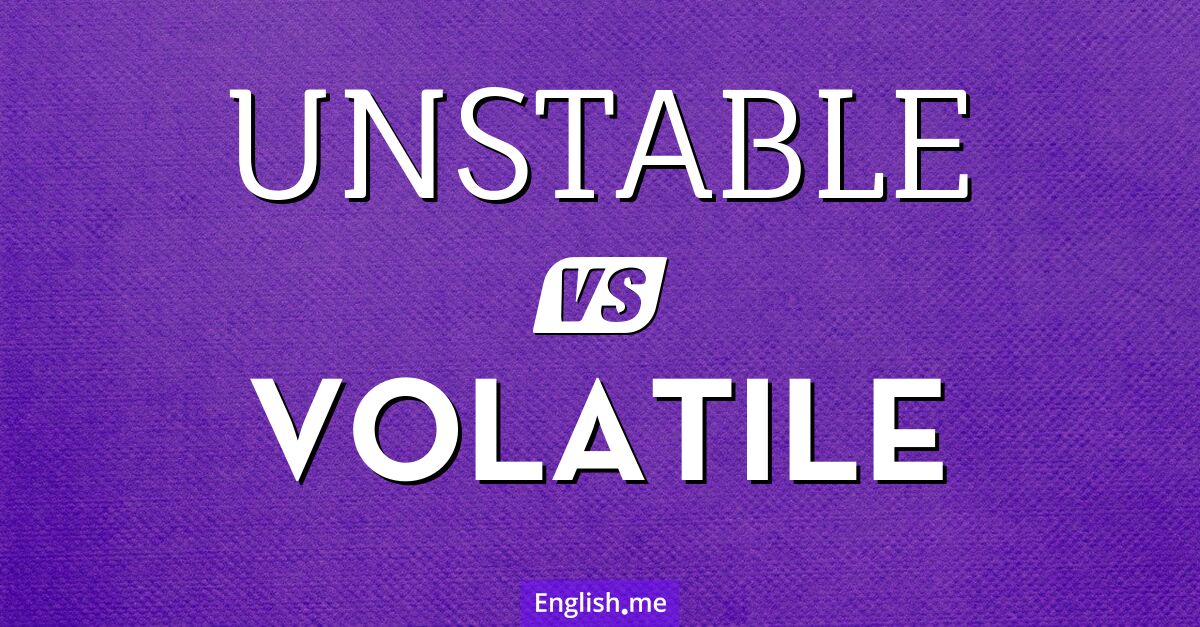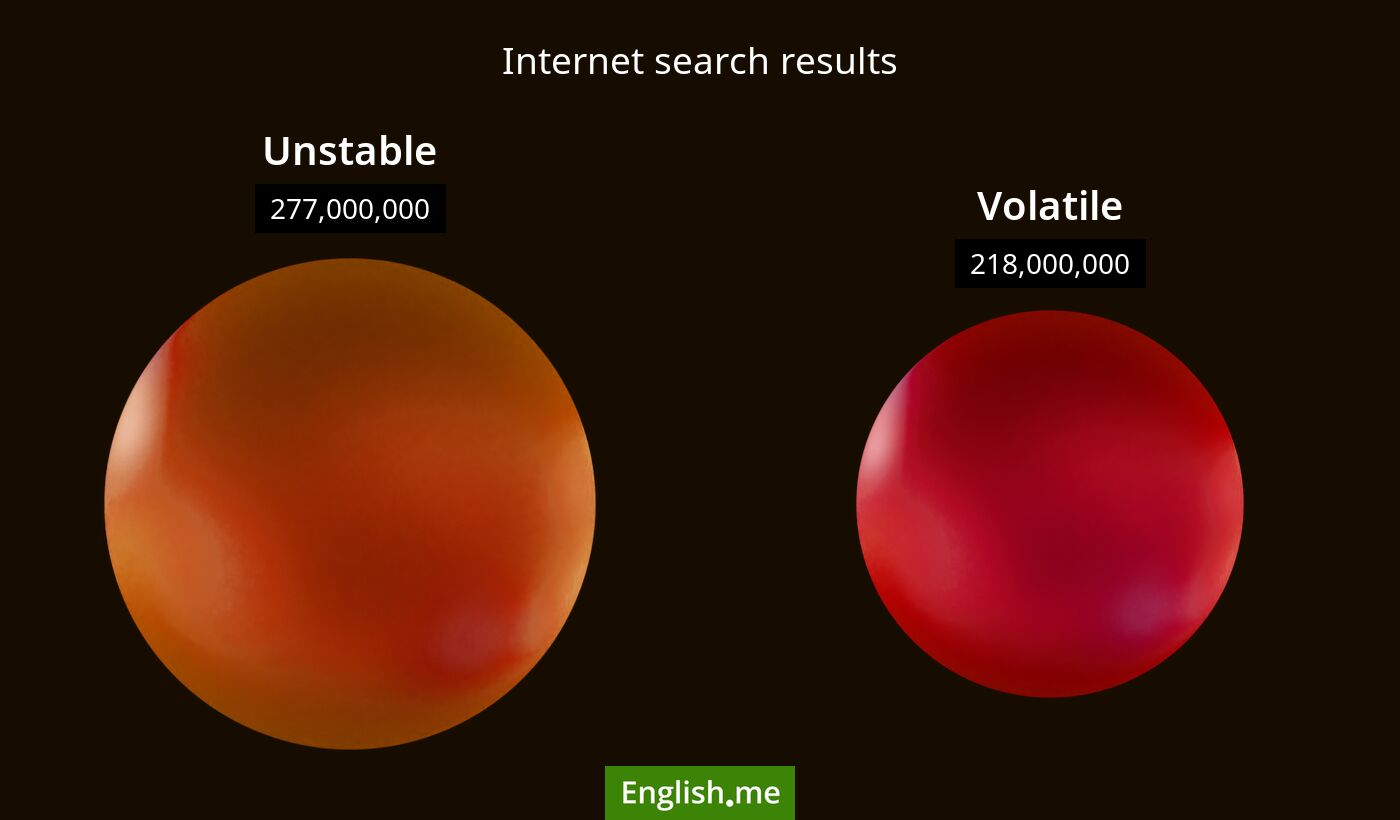"Unstable" vs. "volatile": words on the edge
Reviewed and edited by  Lloyd Cooper 14/10/2024, 19:41
Lloyd Cooper 14/10/2024, 19:41
English.me team member

 What is similar?
What is similar?
Both "unstable" and "volatile" describe conditions or situations that are prone to change, often quickly or unpredictably.
 What is different?
What is different?
While "unstable" generally refers to a lack of stability, leading to unpredictability in various contexts (e.g. emotional, physical, political), "volatile" often implies a tendency to change in a dramatic or explosive manner, frequently used in chemical or financial contexts.
 Which one is more common?
Which one is more common?

 Examples of usage
Examples of usage
Unstable- The bridge was deemed unstable after the storm.
- His financial situation was very unstable.
- The patient's condition remains unstable.
- The stock market is particularly volatile this year.
- She has a volatile temper that can flare up unexpectedly.
- Gasoline is a volatile substance.

 English
English español
español française
française italiano
italiano deutsche
deutsche 日本語
日本語 polski
polski česky
česky svenska
svenska Türkçe
Türkçe Nederlands
Nederlands